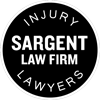You were injured in an accident, but you are not sure whether to file a claim against the other party. Or, perhaps, you are confident the other party is at fault but are not convinced the case is worth pursuing. Rest assured, both thoughts are common in the early stages of a personal injury case; most – if not all – personal injury plaintiffs navigate this line of thinking at some point in the process. By working with a San Diego personal injury attorney, you can gain a broader understanding of not only how personal injury cases work, but where your case qualifies. For starters, ask yourself these questions.
Was I injured?
You must have suffered an injury. You do not have a personal injury case if you did not suffer any injuries. And if you suffered only minor injuries, you might not have a case worth pursuing, especially if you did not require medical treatment.
How serious were your injuries? If you suffered a serious injury and require on-going medical care, though, then you may, in fact, have a valid personal injury case. Further, the extent of the injuries involved will have the greatest impact on the value of the claim. Catastrophic injuries resulting in permanent disability, disfigurement or paralysis generally result in higher verdicts than those involving minor injuries.
What Caused Your Injury? Causation refers to the established link between an event and an injury. It is easier to prove in some cases than in others. For example, in a premises liability claim, it may be easy to establish that the property owner’s negligence in not clearing up a cluttered walkway is what caused you to trip and fall and sustain injuries. On the other hand, if you spilled a drink yourself and slipped in the puddle, then you may not be able to establish a causation link between the defendant’s negligence and your accident and injury.
You must establish causation. You will also have to connect your injuries to the event or accident that is the subject of the case. Known as “causation,” this link between the defendant’s conduct and the resulting injury is an essential element of a successful negligence claim. In some cases, causation is easy to identify and an elaborate analysis of this issue is unnecessary. In other cases, however, certain factors work to create doubt as to whether the defendant was actually the one responsible for the injuries – or if another individual may be at fault. When pursuing a claim, a plaintiff must present facts that positively link the defendant to the resulting injuries.
Who is responsible for my expenses and losses?
The type of accident and type of party at fault affects the claim. This can be tricky in some cases. Much depends on the details of the case, such as where it took place and what contributing factors led to the accident and injuries.
If you were in a car accident and another driver rear-ended you, then you may have a personal injury claim against that other driver. But if you were at work and suffered an injury, for example, then you may not have a personal injury case if your employer is at fault. You could instead have a workers’ compensation claim.
It all starts by identifying fault, so work with a lawyer to investigate the case and get the evidence you need to establish liability.
Comparative fault can affect your claim. Note, however, that in some cases, a plaintiff is partly responsible for his or her own injuries – a concept known as comparative fault or comparative negligence. In some injury cases, a defendant may be quick to point out that – at the time of the incident – the plaintiff was likewise engaging in unreasonably dangerous conduct that contributed to the injury. If the defendant’s comparative negligence argument is successful, the plaintiff’s settlement or award will be reduced by his or her percentage of fault.
Under California law, there is no limit as to the amount of fault that may be attributed to a plaintiff, and a jury may actually find the plaintiff more at fault than the defendant for the resulting injuries (a concept known as “pure” comparative negligence).
Importance of Consulting With a Lawyer
Working with a knowledgeable personal injury attorney is the best way to preserve your rights and obtain fair and adequate compensation. There are a lot of factors at play in personal injury cases, and our attorneys can make sure you meet all the criteria to file your claim and recover damages.
We help injured parties in California and Idaho to evaluate their claims and file successful personal injury lawsuits so they get the compensation they deserve.
Still Not Sure? Seek A Free Consultation
If you have answered all of these questions and you are still not sure whether or not you have a personal injury claim, then the best thing that you can do is to seek out a free consultation from the personal injury attorneys at The Sargent Firm. We’ll be happy to help you to evaluate your legal rights and the liability involved in your claim if you have one. Because the initial consultation is free, you have nothing to lose and everything to gain. Please contact us today.

